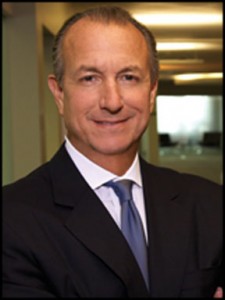
You were recently named chairman of the board at Real Mex Restaurants after you bought out a minority investor. Congratulations. RealMex had been in the Sun Capital portfolio before it went into Chapter 11, where you acquired it. Does it give you special concern to step into a situation where a peer has struggled?
It was also in the KKR portfolio at one point in its history. In the period before 2008, Real Mex had a growth strategy where they opened a lot of new locations, many in California, all using debt, not equity. They entered into leases at a pretty high rent, given the cycle. You’re pushing the edge of all the financial metrics by doing that. In the case of Real Mex, they expanded into areas that were growth areas of housing, so you have very levered consumers around these new locations, which also were highly levered.
We had over 160 stores. Now it’s down to 120. It’s still a great brand — it does need updating and new initiatives, but it still has a vibrant footprint. We brought in a new management team, headed by Charly Robinson, formerly of the Rainforest Café. He’s a great CEO.
Z Capital specializes in managing assets in the distressed private equity / special situations and leveraged finance universe. Do you specialize by geography or economic sector at all?
We focus on businesses that have economic potential, defendable market share and the potential to create free cash flow — but they have been mismanaged, either with the wrong human capital or the wrong balance sheet. We also look for businesses that have downside protection and the ability to expand through organic growth or acquisitions. We focus on North America primarily.
When I think of Z Capital, I tend to think of retail, restaurants, things like that. I know you have other investments as well, but are these industries particularly ripe for your style of investing?
We have invested in everything from steel mills to ag companies to consumer food, consumer product, automotive — the spectrum may be wider than you think. Our recent activity has been in areas like gaming — we are licensed in four states to own and operate casinos. Where the opportunities are depends on the cycle. We try to find good businesses and acquire them at the right price, usually at about half of what a traditional PE firm would pay.
Is debt for control your usual strategy?
Usually it is. We buy senior debt at a significant discount. In the Real Mex example, we bought the debt, but then we bought the equity from a non-strategic minority investor. So it’s a combination of the two, usually in conjunction with a restructuring, either in or out of bankruptcy.
How do you see the market opportunity for distress investing over the next few years for the special situations or distressed investing that you do?
Our working list today is several hundred names. Our database has 26,000 names. We are looking at a dozen deals a week, on average. Depending on the company, the balance sheet, the situation and the price at which we can buy the debt — so through the restructuring we can end up with the equity — they are actionable or they are not. Our pipeline is pretty robust right now, with legacy deals from 2007 to 2010 where their balance sheets don’t work anymore.


 If you do not receive this within five minutes, please try and sign in again. If the problem persists, please
email:
If you do not receive this within five minutes, please try and sign in again. If the problem persists, please
email: